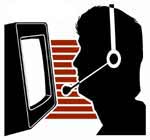After 26 successful years at Procter & Gamble and, more recently, 8 years as COO of Microsoft, you would think that Bob Herbold would be a likely candidate to be seduced by success. As Microsoft COO, the firm had a seven-fold increase in profits with a four-fold increase in revenue. Yet Herbold warned other business leaders not to fall into the traps that winning companies often do. In a presentation for the Entrepreneur's Edge at Corporate College, Herbold alerted business owners to success traps featured in his new book; Seduced by Success: How the Best Companies Survive the 9 Traps of Winning Herbold told the crowd that "Success is a huge business vulnerability" because it causes a Loss of Urgency, Pride and Protectionism and an Entitlement Mentality. Herbold probed 44 companies in researching this book and found that the legacy thinking, practices and people that often result from a successful venture lead to 9 dangerous traps that many companies fall into. While citing examples from companies such as Sony, Apple and Toyota, Herbold used his own experience to detail Trap #6: Mediocrity. This trap for successful companies is to not condone poor performance or let your star employees languish. He told how each year at P&G every division had to pick their Top 50 performers and the list was studied and worked. Similarly, Microsoft's annual employee appraisal system was "not fun" but required and tied to the salary system. When Gillette, the leading consumer product company "got proud of themselves and bloated", new CEO Jim Kilts circulated a "Circle of Doom" memo after only 2 weeks on the job. He also leaked it to Wall Street and the reaction caused a huge turnaround at Gillette leading to a profitable acquisition by P&G. While most in the audience hope to someday reach that level of success where this seduction kicks in, Herbold's advice was portable to smaller and emerging companies as well.
In many business books, it sometimes seems that business scenarios are molded to fit the particular theory that the book espouses. The Great Lakes Geek asked Bob Herbold why a particular behavior that the failure of one company was blamed on, was later praised when it was a success for another company. Listen to Herbold's response and his view of Steve Jobs as "a proprietary kind of guy." September 21, 2007
3,071 KB
3:16
 Listen to this interview Listen to this interview
We've all heard many tales about Bill Gates - the fast cars, how he supposedly didn't practice the best personal hygiene habits, how his temper would flare up to intimidating levels and so on. But are those urban myths or reality? As Microsoft COO Bob Herbold worked closely with Bill Gates and can offer his own perspective on working with the man and the Microsoft culture. September 21, 2007
4,086 KB
4:21
 Listen to this interview Listen to this interview

Former Microsoft COO Robert Bob Herbold
 | 


